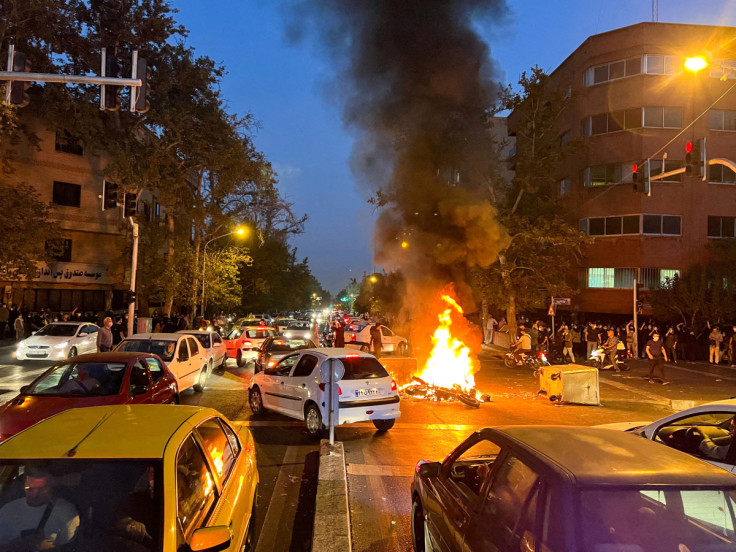EU Set To Pile More Sanctions On Iran Over Violent Crackdown On Protesters

European Union foreign ministers are due to impose more sanctions on Iran on Monday in response to what the bloc has condemned as Tehran's widespread use of force against peaceful protesters.
The protests, sparked by the Sept. 16 death of Mahsa Amini in morality police custody, mark one of the boldest challenges to the Islamic Republic since the 1979 revolution. So far, 336 demonstrators have been killed in the unrest and nearly 15,100 detained, according to the activist HRANA news agency.
In a first round of sanctions in October, the European Union imposed travel bans and asset freezes on 15 Iranian individuals and institutions linked to the young woman's death and the clamp-down on protests.
The new package would see 31 designations for human rights violations that would target individuals and entities covering asset bans and travel freezes, two diplomats told Reuters over the weekend.
Russia's war in Ukraine will be another major topic of the discussions in Brussels.
The meeting of EU foreign ministers on Monday, followed by talks of the defence ministers on Tuesday, is the bloc's first high-level gathering since Russian forces abandoned Kherson, the only regional Ukrainian capital they had captured.
The foreign ministers will discuss increasing support for Kyiv during the upcoming winter and probably also touch on a ninth package of sanctions on Russia, though diplmats say no decision is expected yet.
The meeting comes after U.S. President Joe Biden's Democrats managed to retain control of the Senate in the midterm election, easing concerns Republicans might force Biden administration to scale back crucial U.S. aid for Ukraine.
EU foreign ministers will also start a discussion on the bloc's long-term approach to Moscow since the bloc's past strategy, which saw selective engagement with Russia on topics such as counter-terrorism and climate change, was made obsolete by its Feb. 24 invasion of Ukraine.
On Tuesday, EU defence ministers are set to formally launch the bloc's military assistance mission to Ukraine which aims to train some 15,000 Ukrainian troops.
The training, conducted on EU territory, will include ongoing efforts by several member states to prepare Ukrainian troops for the use of Western weapons sent to Kyiv.
Defence ministers will also discuss the need to replenish the so-called European Peace Facility, which EU states have tapped to fund purchases of arms and military equipment for Kyiv and which has been largely depleted over almost nine months of war in Ukraine.
Set up in 2021 with the original goal of funding military purchases in support of countries in Africa, for example, the EPF was filled with 5.7 billion euros for the period until 2027.
It is up to member states to agree on replenishing the pot and providing the money for it.
© Copyright Thomson Reuters 2025. All rights reserved.





















